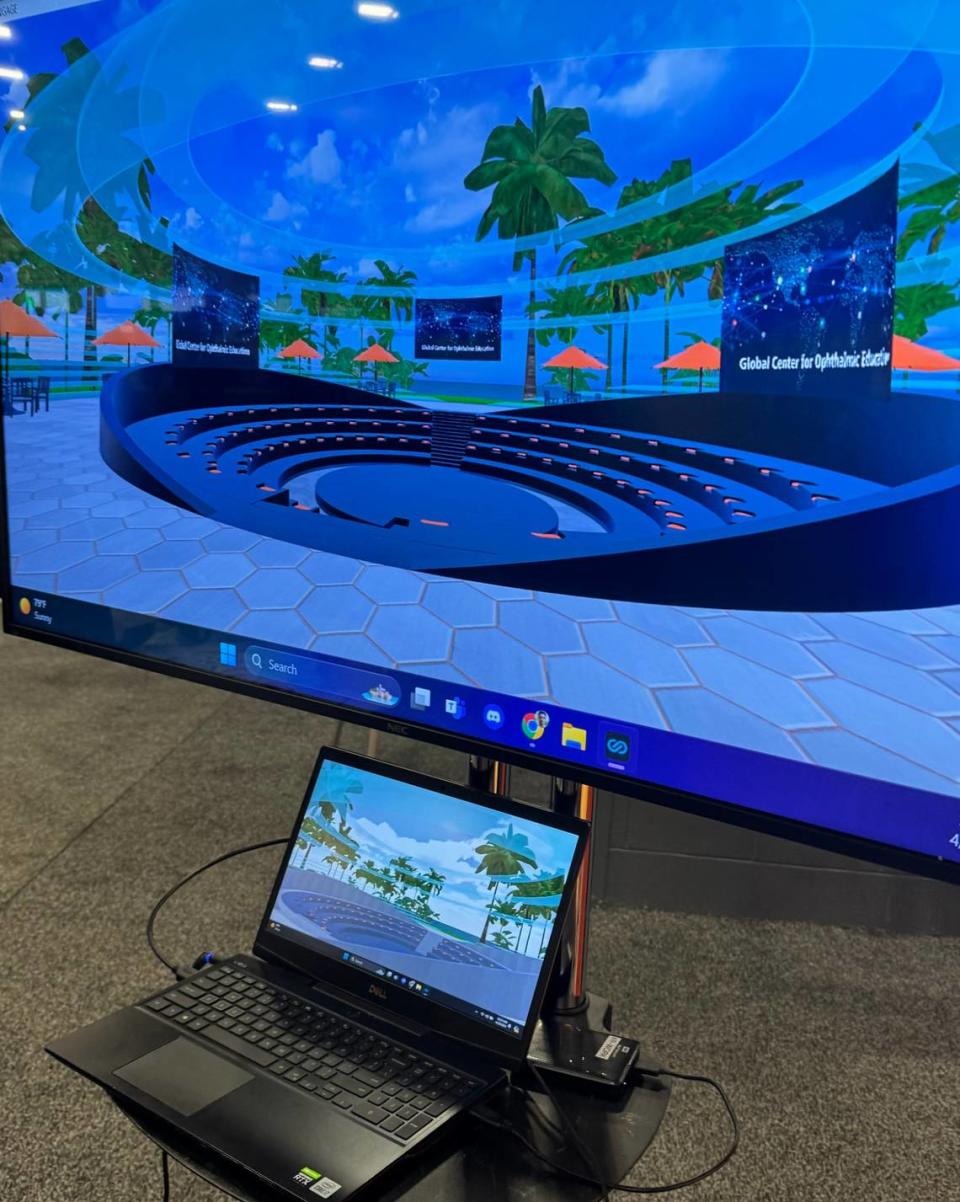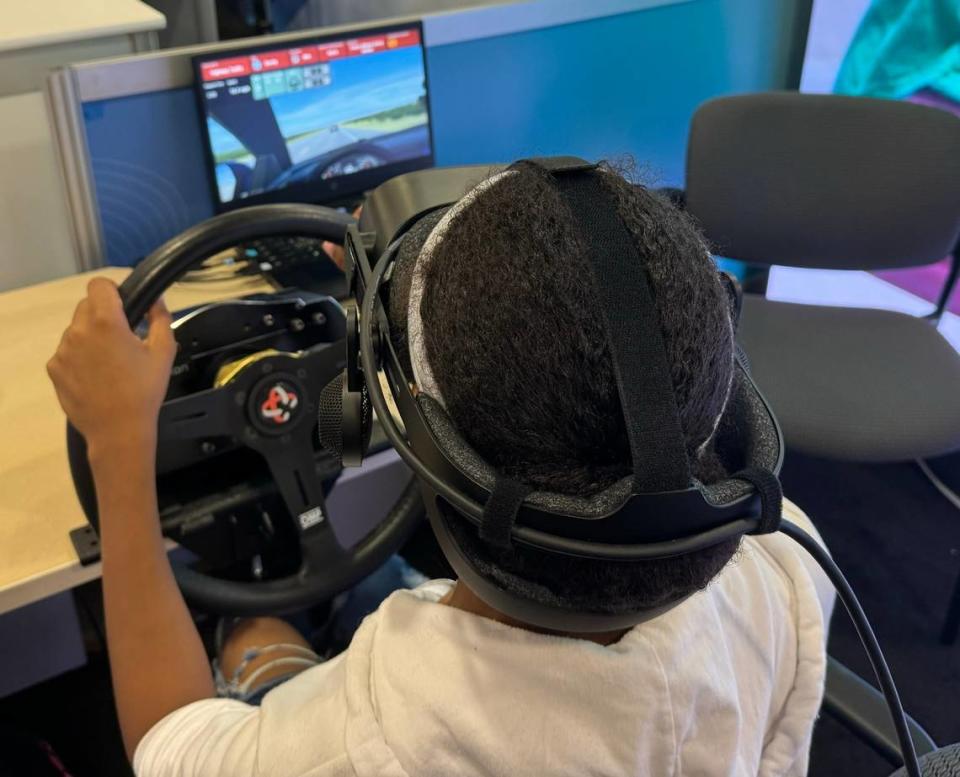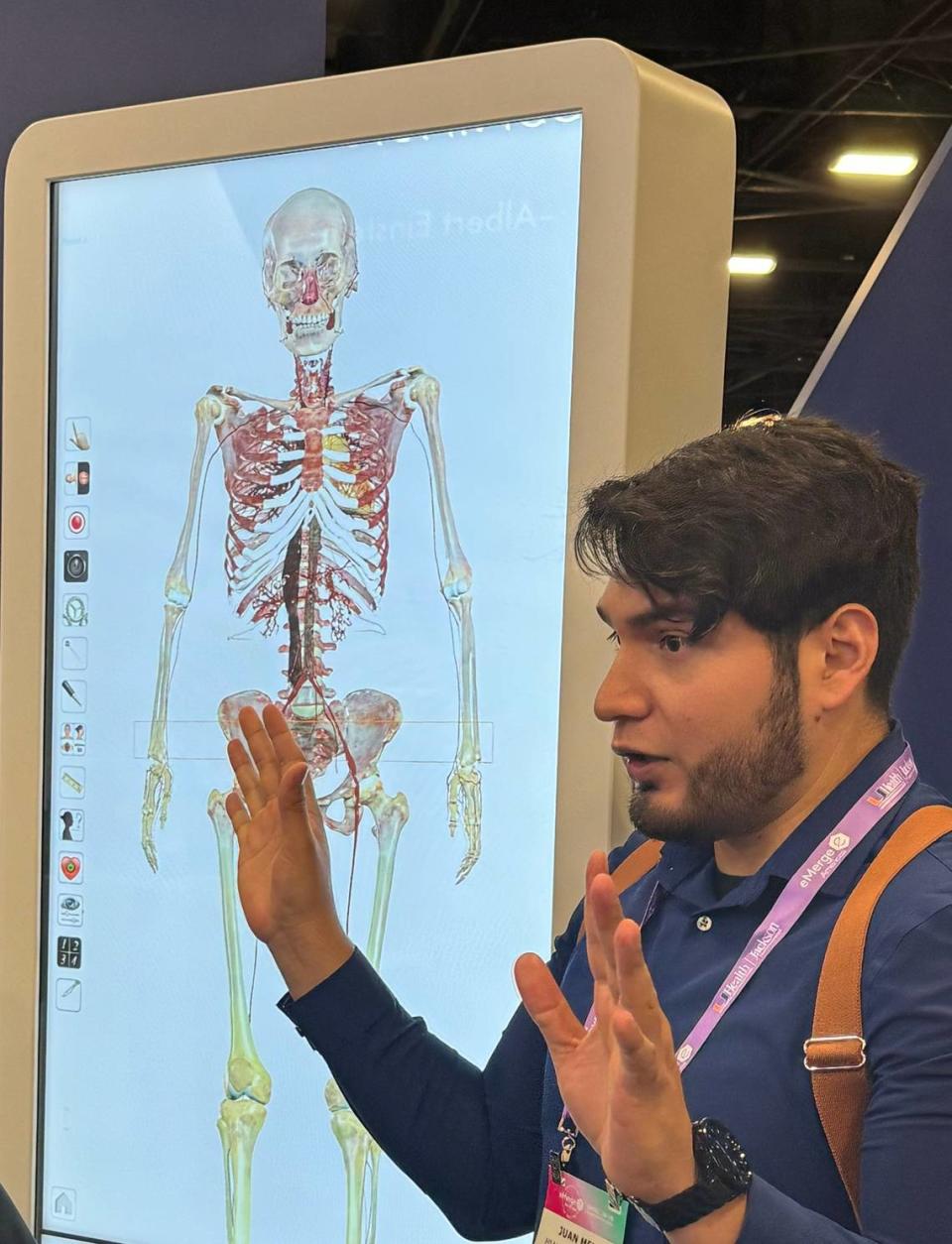Virtual reality, facial recognition. How AI is reshaping healthcare in South Florida
AI is fueling healthcare innovation in South Florida.
Signing in at the doctor’s office with a scan of your face. Using virtual reality to make patients feel like they’re at the beach instead of in a hospital room during procedures to help reduce anxiety. Matchmaking apps to connect patients with doctors and health insurance plans. A small, wearable device that can monitor patient vitals around-the-clock.
AI is changing how patients receive care. It’s helping doctors with paperwork. And it can translate the jargon found in medical bills into words people can actually understand.
Dozens of healthcare and tech experts gathered in Miami Beach this week for the 10th annual eMerge Americas conference to showcase “healthtech” innovations that are expected to improve and personalize patient care. AI also is being used to reduce the workload on physicians and staff, and help researchers and hospital systems analyze data quickly.
And healthtech was at the forefront of eMerge this year, which debuted its “healthtech innovation hub,” in partnership with Jackson Health System, Miami-Dade’s public hospital system, and the University of Miami Health System to feature tech that is expected to revolutionize healthcare.
Here’s a look at some of the healthtech innovations happening in South Florida:
Patient facial recognition
Patients in the near future will be able to use facial recognition, similar to Face ID on their phones, to check-in for their appointments at UHealth facilities, according to James Lindgren, UHealth’s executive director for health system optimization. Patients currently have a variety of check-in options for their appointments at UHealth facilities: in-person, online, when they park in a garage. Soon, they’ll be able to use their face, too.
UHealth is working with CLEAR, the company that powers the facial recognition technology some travelers use at the airport to go through TSA quicker, to make patient facial recognition possible at its facilities, including its urgent care centers. The facial recognition kiosks are expected to roll out across the hospital system in the next few weeks, Lindgren said.

The university showcased many other tech initiatives, including how it’s using virtual reality to give ophthalmology students the opportunity to practice using a slit lamp, a microscope ophthalmologists and optometrists use to examine the eyes of patients.
It’s difficult for students to get any significant practice with this equipment because it’s limited in availability, said Joao Eduardo Llano Ribeiro, programmer for the University of Miami’s Frost Institute of Data Science and Computing. The slit lamp is often used in a room that can hold up to three people, he said. Virtual reality gives them an alternative way to practice.
The University of Miami is also planning to pilot a new first-year, one-credit course next semester that will include a virtual reality component, he said.
Using virtual reality to help reduce patient anxiety
At Nicklaus Children’s Hospital near South Miami, patients can use virtual reality headsets to help reduce anxiety before, during and after procedures, according to Stephen DeGennaro, executive director of Research Information Technology at Nicklaus Children’s Health System. The kids can be transported into space, the mountains and even underwater.

Patients with neurological disorders, such as autism, also are using AI at the hospital to practice driving, he said. Virtual reality is even being used in training to help employees practice deescalation techniques in simulated sessions with aggressive patients.
READ NEXT: Blasting cancer with 120 drugs? Why FIU and a Miami children’s hospital tried it
Targeting Alzheimer’s
Baptist Health of South Florida is the new teaching hospital of Florida International University’s Herbert Wertheim College of Medicine. And this year, the two South Florida institutions showcased the work they’re doing together to target Alzheimer’s.
One of the studies they’re working on: Using focused ultrasounds to temporarily open or “disrupt” the barrier that surrounds the brain in areas where there’s an abnormal build-up of Alzheimer-causing proteins. Researchers want to see whether this will reduce the clustered proteins, and improve or slow progression of the disease.
READ MORE: Can treatment ‘disrupt’ Alzheimer’s in the brain? Help these Florida doctors find out
AI to teach
Miami Dade College showcased a variety of tech at its booth, including robotic dogs and a 3D virtual dissection table that is being used in classrooms. The interactive table displays an accurate 3D representation of human and animal bodies.
You can add or remove muscles, change your field of view and other details to explore and learn the human body.

‘Pushing the limits of healthcare’ on the race track
Jackson Health System builds a full-service temporary trauma center in just weeks for Formula 1’s Miami Grand Prix. It has all the medical equipment doctors would need for an emergency, including X-ray machines and blood transfusions. It’s fully-equipped to care for patients as if they were actually at Jackson’s Ryder Trauma Center in Miami, according to Lisa Coleman, director of nursing in Jackson’s critical care division.
And there’s high-tech everywhere:
The Formula 1 drivers wear gloves with sensors that keep tabs on their vitals, such as their heart rate and blood pressure, Coleman said. And the cars record data, too, so if a car crashes, doctors can see how much G-force was involved in the impact.
“We are here pushing the limits in healthcare ... a lot of things that you do in the track today in a few years will be available for everyone in Miami-Dade County and the world,” said Dr. Antonio Marttos, a Uhealth trauma surgeon at Jackson Health who serves as the chief medical officer for the race track’s trauma center.


